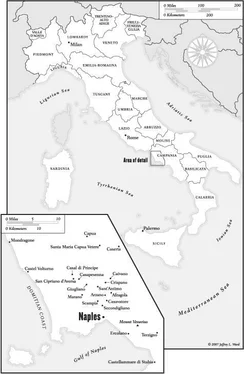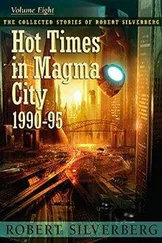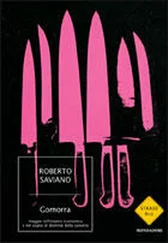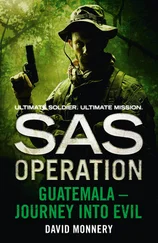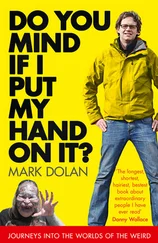Roberto Saviano - Gomorrah - A Personal Journey into the Violent International Empire of Naples’ Organized Crime System
Здесь есть возможность читать онлайн «Roberto Saviano - Gomorrah - A Personal Journey into the Violent International Empire of Naples’ Organized Crime System» весь текст электронной книги совершенно бесплатно (целиком полную версию без сокращений). В некоторых случаях можно слушать аудио, скачать через торрент в формате fb2 и присутствует краткое содержание. Жанр: Старинная литература, на английском языке. Описание произведения, (предисловие) а так же отзывы посетителей доступны на портале библиотеки ЛибКат.
- Название:Gomorrah: A Personal Journey into the Violent International Empire of Naples’ Organized Crime System
- Автор:
- Жанр:
- Год:неизвестен
- ISBN:нет данных
- Рейтинг книги:5 / 5. Голосов: 1
-
Избранное:Добавить в избранное
- Отзывы:
-
Ваша оценка:
- 100
- 1
- 2
- 3
- 4
- 5
Gomorrah: A Personal Journey into the Violent International Empire of Naples’ Organized Crime System: краткое содержание, описание и аннотация
Предлагаем к чтению аннотацию, описание, краткое содержание или предисловие (зависит от того, что написал сам автор книги «Gomorrah: A Personal Journey into the Violent International Empire of Naples’ Organized Crime System»). Если вы не нашли необходимую информацию о книге — напишите в комментариях, мы постараемся отыскать её.
Gomorrah: A Personal Journey into the Violent International Empire of Naples’ Organized Crime System — читать онлайн бесплатно полную книгу (весь текст) целиком
Ниже представлен текст книги, разбитый по страницам. Система сохранения места последней прочитанной страницы, позволяет с удобством читать онлайн бесплатно книгу «Gomorrah: A Personal Journey into the Violent International Empire of Naples’ Organized Crime System», без необходимости каждый раз заново искать на чём Вы остановились. Поставьте закладку, и сможете в любой момент перейти на страницу, на которой закончили чтение.
Интервал:
Закладка:
Pasquale left the house without even bothering to shut the door. Luisa knew where he was going; she knew he was headed to Secondigliano and whom he was going to see. She threw herself on the couch and buried her face in a pillow like a child. I don’t know why, but when Luisa started to cry, it made me think of a poem by Vittorio Bodini. Lines that tell of the strategies southern Italian peasants used to keep from becoming soldiers, to avoid going off to fill the trenches of World War I in defense of borders they knew nothing of.
At the time of the other war peasants and smugglers
put tobacco leaves under their arms
to make themselves ill.
The artificial fevers, the supposed malaria
that made their bodies tremble and their teeth rattle
were their verdict
on governments and history.
That’s how Luisa’s weeping seemed to me—a verdict on government and history. Not a lament for a satisfaction that went uncelebrated. It seemed to me an amended chapter of Marx’s Capital, a paragraph added to Adam Smith’s The Wealth of Nations, a new sentence in John Maynard Keynes’s General Theory of Employment, Interest and Money, a note in Max Weber’s The Protestant Ethic and the Spirit of Capitalism. A page added or removed, a forgotten page that never got written or that perhaps was written many times over but never recorded on paper. Not a desperate act but an analysis. Severe, detailed, precise, reasoned. I imagined Pasquale in the street, stomping his feet as if knocking snow from his boots. Like a child who is surprised to discover that life has to be so painful. He’d managed up till then. Managed to hold himself back, to do his job, to want to do it. And do it better than anyone else. But the minute he saw that outfit, saw that body moving inside the very fabric he’d caressed, he felt alone, all alone. Because when you know something only within the confines of your own flesh and blood, it’s as if you don’t really know it. And when work is only about staying afloat, surviving, when it’s merely an end in itself, it becomes the worst kind of loneliness.
I saw Pasquale two months later. They’d put him on truck detail. He hauled all sorts of stuff—legal and illegal—for the Licciardi family businesses. Or at least that’s what they said. The best tailor in the world was driving trucks for the Camorra, back and forth between Secondigliano and Lago di Garda. He asked me to lunch and gave me a ride in his enormous vehicle. His hands were red, his knuckles split. As with every truck driver who grips a steering wheel for hours, his hands freeze up and his circulation is bad. His expression was troubled; he’d chosen the job out of spite, out of spite for his destiny, a kick in the ass of his life. But you can’t tolerate things indefinitely, even if walking away means you’re worse off. During lunch he got up to go say hello to some of his accomplices, leaving his wallet on the table. A folded-up page from a newspaper fell out. I opened it. It was a photograph, a cover shot of Angelina Jolie dressed in white. She was wearing the suit Pasquale had made, the jacket caressing her bare skin. You need talent to dress skin without hiding it; the fabric has to follow the body, has to be designed to trace its movements.
I’m sure that every once in a while, when he’s alone, maybe when he’s finished eating, when the children have fallen asleep on the couch, worn-out from playing, while his wife is talking on the phone with her mother before starting on the dishes, right at that moment Pasquale opens his wallet and stares at that newspaper photo. And I’m sure that he’s happy as he looks at the masterpiece he created with his own hands. A rabid happiness. But no one will ever know.
*Post-Fordism is a mode of production that favors more flexible manufacturing practices and less hierarchical social dynamics than those developed in the assembly-line methods of Henry Ford’s factories.—Trans.
THE SYSTEM
The huge international clothing market, the vast archipelago of Italian elegance, is fed by the System. With its companies, men, and products, the System has reached every corner of the globe. System —a term everyone here understands, but that still needs decoding elsewhere, an obscure reference for anyone unfamiliar with the power dynamics of the criminal economy. Camorra is a nonexistent word, a term of contempt used by narcs and judges, journalists and scriptwriters; it’s a generic indication, a scholarly term, relegated to history—a name that makes Camorristi smile. The word clan members use is System —”I belong to the Secondigliano System”—an eloquent term, a mechanism rather than a structure. The criminal organization coincides directly with the economy, and the dialectic of commerce is the framework of the clans.
The Secondigliano System has gained control of the entire clothing manufacturing chain, and the real production zone and business center is the outskirts of Naples. Everything that is impossible to do elsewhere because of the inflexibility of contracts, laws, and copyrights is feasible here, just north of the city. Structured around the entrepreneurial power of the clans, the area produces astronomical capital, amounts unimaginable for any legal industrial conglomeration. The interrelated textile, leatherworking, and shoe manufacturing activities set up by the clans produce garments and accessories identical to those of the principal Italian fashion houses.
The workforce in clan operations is highly skilled, with decades of experience under Italy’s and Europe’s most important designers. The same hands that once worked under the table for the big labels now work for the clans. Not only is the workmanship perfect, but the materials are exactly the same, either bought directly on the Chinese market or sent by the designer labels to the underground factories participating in the auctions. Which means that the clothes made by the clans aren’t the typical counterfeit goods, cheap imitations, or copies passed off as the real thing, but rather a sort of true fake. All that’s missing is the final step: the brand name, the official authorization of the motherhouse. But the clans usurp that authorization without bothering to ask anybody’s permission. Besides, what clients anywhere in the world are really interested in is quality and design. And the clans provide just that—brand as well as quality—so there really is no difference. The Secondigliano clans have acquired entire retail chains, thus spreading their commercial network across the globe and dominating the international clothing market. They also provide distribution to outlet stores. Products of slightly inferior quality have yet another venue: African street vendors and market stalls. Nothing goes unused. From factory to store, from retailer to distributor, hundreds of companies and thousands of employees are elbowing each other to get in on the garment business run by the Secondigliano clans.
Everything is coordinated and managed by the Directory. I hear the term constantly—every time bar talk turns to business, or in the usual complaints about not having work: “It’s the Directory that wanted it that way.” “The Directory better get busy and start doing things on a bigger scale.” They sound like snippets of conversation in postrevolutionary France, when the collective governing body was Napoléon’s Directoire. “Directory” is the name the magistrates at the Naples DDA—the District Anti-Mafia Directorate—gave to the economic, financial, and operative structure of a group of businessmen and Camorra family bosses in north Naples. A structure with a purely economic role. The Directory, and not the hit men or firing squads, represents the organization’s real power.
Читать дальшеИнтервал:
Закладка:
Похожие книги на «Gomorrah: A Personal Journey into the Violent International Empire of Naples’ Organized Crime System»
Представляем Вашему вниманию похожие книги на «Gomorrah: A Personal Journey into the Violent International Empire of Naples’ Organized Crime System» списком для выбора. Мы отобрали схожую по названию и смыслу литературу в надежде предоставить читателям больше вариантов отыскать новые, интересные, ещё непрочитанные произведения.
Обсуждение, отзывы о книге «Gomorrah: A Personal Journey into the Violent International Empire of Naples’ Organized Crime System» и просто собственные мнения читателей. Оставьте ваши комментарии, напишите, что Вы думаете о произведении, его смысле или главных героях. Укажите что конкретно понравилось, а что нет, и почему Вы так считаете.
